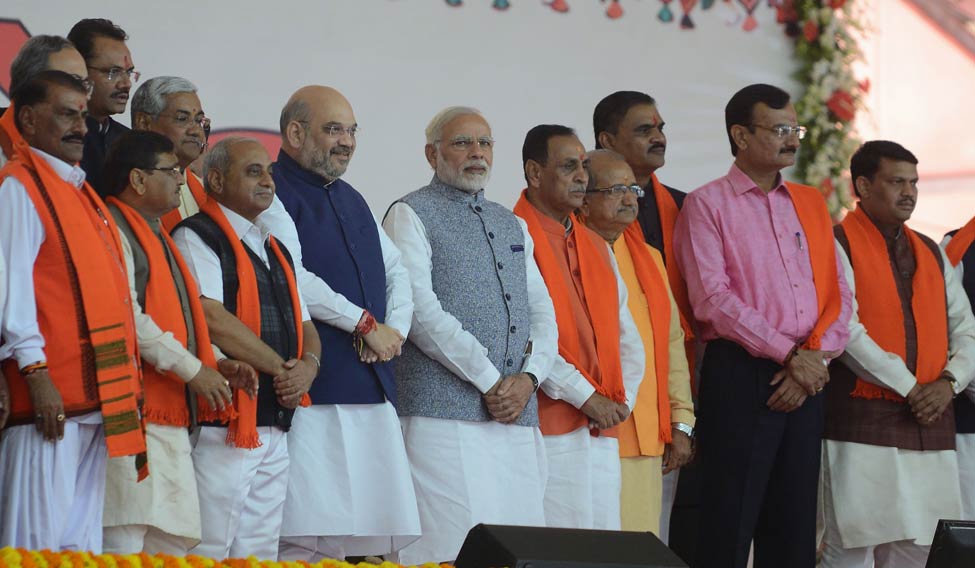Having just managed to retain power for the sixth successive time, the newly formed BJP government under the leadership of Vijay Rupani in Gujarat reflects that the party has tried to give due weightage to different caste compositions and regions.
Twenty ministers of cabinet and state ranks, including Rupani and his deputy Nitin Patel, were administered oath of office by Governor O. P. Kohli at an event studded by politicians from across the country in Gandhinagar on Tuesday. Leading the bunch of politicians were Prime Minister Narendra Modi and BJP national president Amit Shah.
Several Union ministers and chief ministers of 18 states flew in to the state capital.
Looking to region wise bifurcation, six ministers each are from Saurashtra and North Gujarat, one from Kutch, five from South Gujarat and two from North East Gujarat. South Gujarat is the region where the BJP really fared well.
It was expected that the Congress would do well in South Gujarat considering the kind of response Patidar stir leader Hardik Patel was getting in his public meetings.
The BJP got a beating in Saurashtra region where Rupani is from, but the party did pretty well in North Gujarat from where Nitin Patel hails.
The cabinet has six Patidars and four OBCs followed by three from each Rajputs and ST. There is one member from each Jain, Brahmin, SC and Ahir communities.
Three sitting ministers have been dropped in the new government.
The first cabinet meeting of the new government will be held in Gandhinagar on Wednesday. Portfolio allocation is expected to be announced in the meeting.
The priority of the new government would be to undertake measures by which the rural electorate again comes backs to its fold. While the urban electorate voted for the BJP, the party performed bad in the rural areas. The BJP's loss in rural areas is attributed to woes of the farmers and effect of Patidar stir to some extent.
Soon after taking charge, deputy chief minister Nitin Patel convened a meeting of Chief Secretary J.N. Singh and other senior officers. They are reported to have discussed the issue of giving minimum support price for groundnut to the farmers.
The government will also have to work out a strategy to contain a rejuvenated opposition, which is stronger in numbers comparing to the previous regime.
The highlight of the function was the presence of four former chief ministers—Narendra Modi, Anandiben Patel, Keshubhai Patel and Shankersinh Vaghela.
Modi, Keshubhai and Vaghela, colleagues since RSS days, shook hands and spoke briefly.






